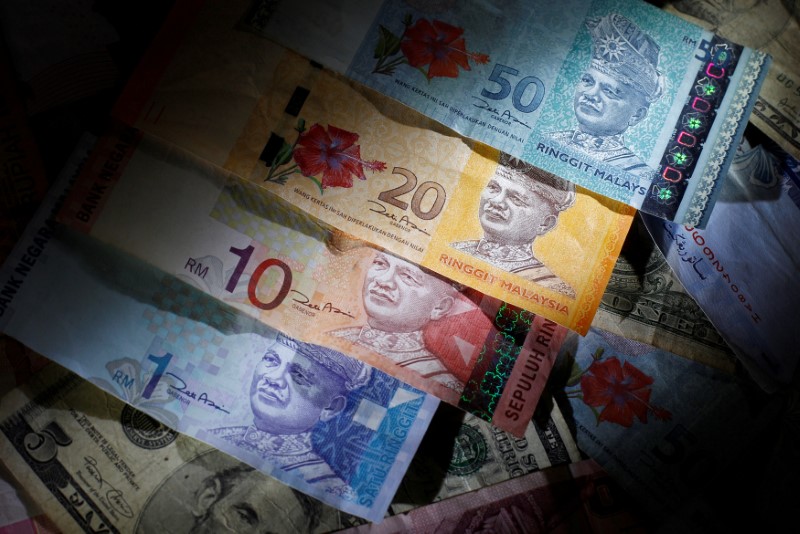Select Language

Investing.com –Asian currencies declined on Friday, led by sharp losses in the South Korean won and Malaysian ringgit, as markets were rattled by fresh tariff threats from U.S. President Donald Trump, while the Japanese yen remained steady following strong inflation data from Tokyo.
Trump threatened that he would impose significant trade tariffs on BRICS nations should the bloc pursue plans to develop a common currency aimed at reducing reliance on the U.S. dollar.
The US Dollar Index was marginally higher in Asian trading hours on Friday, while Dollar Index Futures rose 0.4%.
The greenback was supported by expectations of slower rate cuts in 2025, and the lingering impact of Trump's tariff policies.
Trump's tariff threat sparks risk-off mood, Asia FX tumbles
Trump’s proposal to impose steep tariffs rattled markets, particularly export-reliant economies.
The South Korean won tumbled 0.8% against the U.S. dollar on Friday, with the USD/KRW pair set to rise nearly 2% for the week.
The Malaysian ringgit’s USD/MYR pair jumped 0.8%, and was on track for a 1% weekly gain.
Trump on Thursday reiterated his intention to implement a 25% tariff on imports from Canada and Mexico starting this Saturday, with potential additional tariffs on Chinese goods.
Additionally, he threatened that the BRICS bloc, which consists of Brazil, Russia, India, China, South Africa, and others, could face “100% tariffs” if they move away from the dollar.
Earlier in the week, the U.S. Federal Reserve held rates unchanged and indicated that the policy would remain restrictive until inflation is fully tamed.
With expectations of higher-for-longer U.S. rates, and prospects of a stronger dollar, Asian currencies faced further downward pressure..
The Chinese yuan’s onshore pair USD/CNY inched 0.2% higher, while the offshore pair USD/CNH was largely muted.
The Singapore dollar’s USD/SGD pair inched 0.2% higher, while, the Indian rupee’s USD/INR pair ticked up 0.1%.
The Indonesian rupiah fell further, with the USD/IDR pair rising 0.4%, even after the Bank Indonesia intervened to Thursday to assure the markets of stable supply and demand in forex markets
The Australian dollar's AUD/USD pair inched 0.2% amid rate hike bets.
Japanese yen muted despite rate hike bets after Tokyo CPI
The Japanese yen’s USD/JPY pair was largely unchanged, in line with the broader mood, even as a strong inflation print from Tokyo kept rate hike bets alive.
Data on Friday showed that Tokyo's consumer price index (CPI) inflation rose as expected in January, reaching a nearly two-year high, driven by strong private spending.
Headline CPI inflation accelerated to 3.4% year-on-year, up from 3% in December, marking its highest level since April 2023, while core CPI, which excludes fresh food prices, increased 2.5% year-on-year, hitting an 11-month high.
With a strong inflation print, market participants firmed up interest rate hike bets, although the Bank of Japan is not expected to raise rates further until at least mid-2025.

